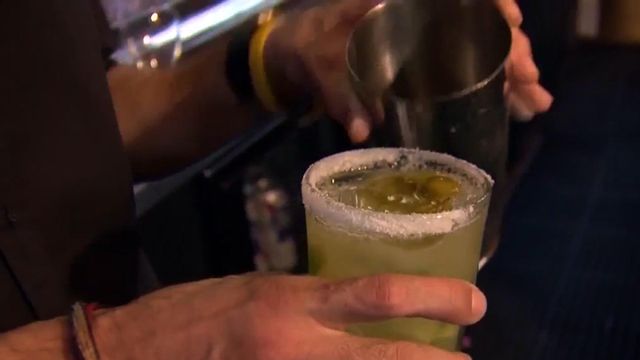SC shows cutting off alcohol sales early could help in fight against coronavirus
Late-night drinking at restaurants across North Carolina is against the law for at least the next month in an effort to curb the spread of coronavirus.
Posted — UpdatedAlthough bars statewide have remained closed during the pandemic, restaurants have been open for more than two months at half capacity. Cooper said this week that there has been anecdotal evidence that restaurants "essentially turn into bars late at night" and become partying hotspots.
"People are less socially distant and less sitting at tables and more milling around and more up around the bar," he said in explaining his decision to restrict late-night sales.
Cooper said evidence from a number of states has shown bars to be sites of viral outbreaks, so WRAL Investigates looked into known outbreaks in other states.
A bar in Boise, Idaho, was linked to more than 150 cases, and one in Vancouver, Wash., was the source of 18 cases.
With North Carolina universities bringing students back to campuses in the coming weeks and younger adults already serving as a driving force to the state's rising caseload, Cooper said he hopes limiting the flow of alcohol will keep the outbreak from spiking.
Several states, like Texas, reopened bars early but have since backtracked because of a surge in cases.
Kentucky reopened bars June 29, when the state was averaging 152 new cases a day – now it’s up to 548 cases per day. Louisiana, Mississippi and Illinois show similar trends, but it’s important to note that other restrictions were eased in those states as well as allowing bars to reopen.
South Carolina, which also reopened early from virus restrictions, could provide proof that limiting late-night alcohol sales could have an impact on the pandemic.
South Carolina installed an earlier cut-off time on July 11. At the time, the state had well over 2,000 new cases a day. Two weeks later, that number had dropped to 1,325 a day. Also, the state's rolling, seven-day average of new cases has been in a sharp decline since July 17.
How North Carolina's new restriction will be enforced remains a question. Numerous instances have been reported where people in restaurants haven't followed rules state officials have put in place to limit the spread of the virus, such as wearing masks in public and maintaining social distance from others.
Cooper said local law enforcement, state Alcohol Law Enforcement agents and the Alcoholic Beverage Control Commission would handle the new restriction, but ABC Commission officials said no establishments have had their liquor licenses suspended or revoked during the pandemic for violations of state orders.
Since Texas bars were ordered closed again, at least two dozen establishments in that state are in danger of losing their liquor licenses for at least a month.
Related Topics
• Credits
Copyright 2024 by Capitol Broadcasting Company. All rights reserved. This material may not be published, broadcast, rewritten or redistributed.





